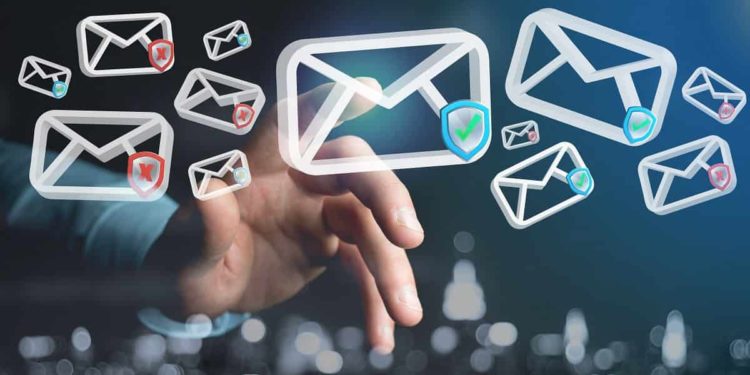Email is one of the most popular ways to communicate, and there are many email service providers that you can use for free or inexpensively. But it can also put the security of your business communication at risk.
However, emails are highly likely to be intercepted because they’re transmitted in an unencrypted format over public networks. So, how can businesses secure their email communication? What precautions should be taken when sending emails to guard against hacking and spamming?
Table of Contents
Ways To Secure Your Company’s E-mail Communication
Below are some of the email security practices that everyone must follow to safeguard a business’s e-mail communications:
Use Encryption Software To Encrypt Messages
Encryption is a process of encoding messages using secure algorithms. It transforms any readable symbols into secure code so only the intended recipient can decode and read the message. The encrypted messages can only be decoded by using a specific key that only the intended recipient has.
As such, a secure mail platform provides secure transmission of data between employees and the email platform. Encryption software is used to secure sensitive messages from potential hackers, even if it’s stolen or hacked by an unauthorized person.
Don’t Open Any Suspicious Email Attachments
Sending and receiving documents of any format is easy with email platforms. Many companies regularly send and receive emails to exchange payroll information, employee benefits plans, financial statements, and other sensitive documents.
To secure your company’s email communication against the threat of malware, everyone should refrain from opening any attachments included in the email without actually knowing how secure they are. This is because these attachments can contain malicious code that can infect your computer with viruses and steal the company’s confidential information.
Educate Employees On How To Identify Phishing Attacks
Phishing attacks are designed to steal sensitive information through email. Phishing attacks can be sent by hackers using your company’s domain name to fool employees into thinking they’re communicating with the company. Phishing emails often have viruses like the ransomware virus that’ll block access to a computer until a specific amount of money has been paid.
Secure your company’s email communication against phishing attacks by educating employees of the following:
- A company will never ask for any personal information, such as their login details through email or phone.
- Don’t click on any links provided in the email. Also, don’t download or install any attachments included in the email.
Implement Two-Factor Authentication (2FA)
Two-factor authentication is one of the most effective ways to secure your company’s email communication. Two-factor authentication requires users to submit a password and a one-time token to log in. Users can generate these tokens or codes through security apps or by sending a unique code through text message.

Create Strong Passwords
Hackers are now using several new and innovative ways to crack secure passwords. Hackers use brute-forcing software and create thousands of passwords through a list of common names, terms, and phrases to hack into certain accounts.
To secure your company’s email communication against brute force attacks, all employees should:
- Use Secure Passwords: Longer and secure passwords that aren’t easily guessable by brute-forcing tools should be used. A password that has a combination of letters, numbers, and symbols should be practiced.
- Use Different Passwords: Different secure passwords should be used for specific accounts and secure email platforms. Using secure passwords isn’t effective if the same password is used for secure emails, secure banking sites, and secure online shopping sites.
- Change Passwords Periodically: As cybercrime continues to evolve, there’s a high chance that hackers will crack insecure and outdated passwords. To secure your company’s email communication, all employees must practice changing passwords periodically to a new secure password that hasn’t been used.
Don’t Reply To Spam Messages
Spammers regularly send spam messages through hundreds of free email service providers to thousands of recipients. These spam messages contain links to unsecured sites that hackers can use to infect any computer through malware and download viruses.
Therefore, all employees should immediately delete any spam messages without opening or replying to them.
Check Security Settings And Update Them If Needed
The security settings in email platforms are set to default levels for optimum protection of sensitive information. But these settings can be updated according to the current cyber threats.
To secure your company’s email communication, you must ensure that the security settings in your email platform should be checked regularly and updated if necessary.
Final Words
Emails have become one of the most prevalent ways to communicate with clients, customers, and other stakeholders in your company. Yet this communication is vulnerable to cybercrime attacks that can result in data breaches or financial losses.
Secure your business’s communication and protect your company’s sensitive information with the email security practices suggested in this article. By doing so, you can keep your business communication safe from hackers.



















